Filter by
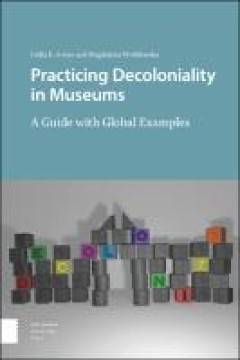
Practicing decoloniality in museums : a guide with global examples
The cry for decolonization has echoed throughout the museum world. Although perhaps most audibly heard in the case of ethnographic museums, many different types of museums have felt the need to engage in decolonial practices. Amidst those who have argued that an institution as deeply colonial as the museum cannot truly be decolonized, museum staff and museologists have been approaching the issu…
- Edition
- -
- ISBN/ISSN
- 9789048554836
- Collation
- 125 p.
- Series Title
- -
- Call Number
- 069 ARI p
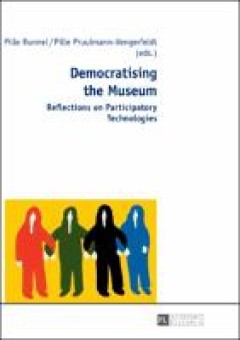
Democratising the museum : reflections on participatory technologies
Democratising the museum is a collection of articles reflecting upon the problem of how participation, technologically mediated or not, can support the museum in the process of becoming more accessible. The open museum shares power with its visitors while negotiating professionalism and the role of the museum in a modern society. The book looks at the roles and struggles of audiences/visitors a…
- Edition
- -
- ISBN/ISSN
- -
- Collation
- 240 p.
- Series Title
- -
- Call Number
- 069 DEM d
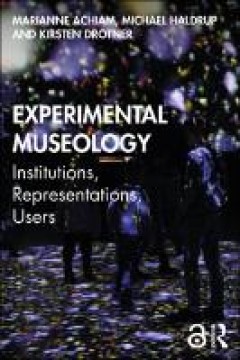
Experimental museology: institutions, representations, users
Experimental Museology scrutinizes innovative endeavours to transform museum interactions with the world. Analysing cutting-edge cases from around the globe, the volume demonstrates how museums can design, apply and assess new modes of audience engagement and participation. Written by an interdisciplinary group of researchers and research-led professionals, the book argues that museum transform…
- Edition
- -
- ISBN/ISSN
- 9780367808433
- Collation
- XV, 214 p.
- Series Title
- -
- Call Number
- 069 EXP e
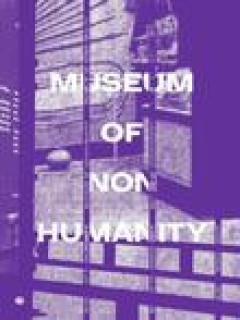
Museum of nonhumanity
Museum of Nonhumanity is the catalogue for a full-size touring museum that presents the history of the distinction between humans and animals, and the way that this artificial boundary has been used to oppress human and nonhuman beings over long historical periods. Throughout history, declaring a group to be nonhuman or subhuman has been an effective tool for justifying slavery, oppression, med…
- Edition
- 1st edition.
- ISBN/ISSN
- 9781950192120
- Collation
- 281p.:
- Series Title
- -
- Call Number
- B105.A55 GUS m
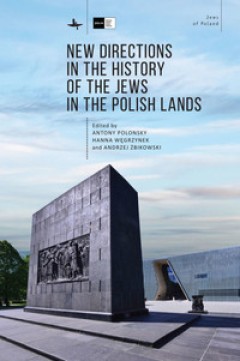
New directions in the history of the Jews in the Polish lands
This volume is made up of essays first presented as papers at the conference held in May 2015 at POLIN Museum of the History of Polish Jews in Warsaw. It is divided into two sections. The first deals with museological questions—the voices of the curators, comments on the POLIN museum exhibitions and projects, and discussions on Jewish museums and education. The second examines the current sta…
- Edition
- -
- ISBN/ISSN
- 9788394914912
- Collation
- LXXX, 502 p.
- Series Title
- -
- Call Number
- 943.8004924 NEW n
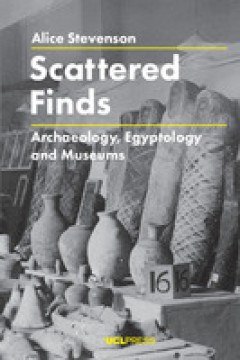
Scattered finds : archaeology, Egyptology and museums
Scattered Finds explores the politics, personalities and social histories that linked fieldwork in Egypt with the varied organizations around the world that received finds. Case studies range from Victorian municipal museums and women’s suffrage campaigns in the UK, to the development of some of the USA’s largest institutions, and from university museums in Japan to new institutions in post…
- Edition
- -
- ISBN/ISSN
- 9781787351400
- Collation
- XIII, 304 p.
- Series Title
- -
- Call Number
- 932 STE s
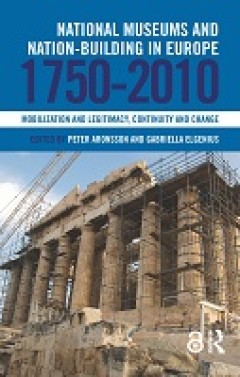
National museums and nation-building in Europe 1750-2010 : mobilization and l…
Europe’s national museums have since their creation been at the centre of on-going nation making processes. National museums negotiate conflicts and contradictions and entrain the community sufficiently to obtain the support of scientists and art connoisseurs, citizens and taxpayers, policy makers, domestic and foreign visitors alike. National Museums and Nation-building in Europe 1750-2010 a…
- Edition
- -
- ISBN/ISSN
- 9780415853965
- Collation
- XIII, 212 p.
- Series Title
- -
- Call Number
- 069.094 NAT n
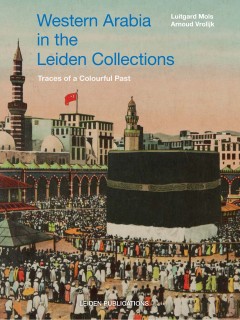
Western Arabia in the Leiden collections : traces of a colourful past
"In the late nineteenth and early twentieth century Dutch diplomats, scholars and travellers assembled unique collections in Jeddah, Mecca and Medina. The Dutch presence in Arabia, where they established a consulate in Jeddah, was intimately connected with the supervision of the annual pilgrimage to Mecca from the Netherlands East Indies, present-day Indonesia. Notable guests at this consulate …
- Edition
- -
- ISBN/ISSN
- 9789087282592
- Collation
- 191p. : ill.
- Series Title
- -
- Call Number
- 953.8 MOL w
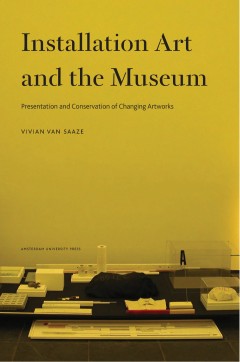
Installation art and the museum : presentation and conservation of changing a…
Installation art has become mainstream in artistic practices. However, acquiring and displaying such artworks implies that curators and conservators are challenged to deal with obsolete technologies, ephemeral materials and other issues concerning care and management of these artworks. By analysing three in-depth case studies, the author sheds new light on the key concepts of traditional conser…
- Edition
- -
- ISBN/ISSN
- 9789089644596
- Collation
- 225p. : ill.
- Series Title
- -
- Call Number
- 709.0407 VAN i

European heritage, dialogue and digital practices
European Heritage, Dialogue and Digital Practices focuses on the intersection of heritage, dialogue and digital culture in the context of Europe. Responding to the increased emphasis on the potential for heritage and digital technologies to foster dialogue and engender communitarian identities in Europe, the book explores what kind of role digital tools, platforms and practices play in supporti…
- Edition
- -
- ISBN/ISSN
- 9780429053511
- Collation
- XV, 130 p
- Series Title
- Critical Heritages of Europe
- Call Number
- 069.094 GAL e
 Computer Science, Information & General Works
Computer Science, Information & General Works  Philosophy & Psychology
Philosophy & Psychology  Religion
Religion  Social Sciences
Social Sciences  Language
Language  Pure Science
Pure Science  Applied Sciences
Applied Sciences  Art & Recreation
Art & Recreation  Literature
Literature  History & Geography
History & Geography